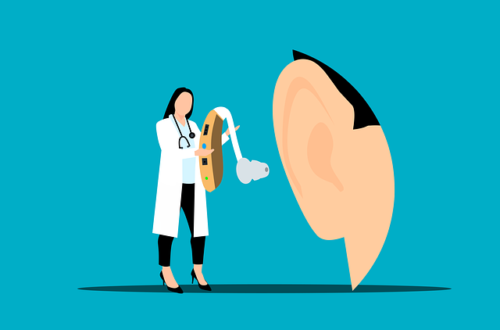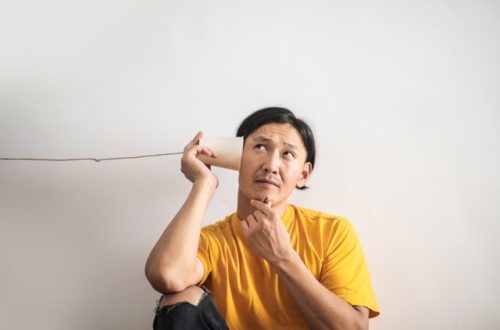Understanding the Treatment of Major Depression Disorder
Major depressive disorder (MDD) is a mood disorder characterized by low feelings of sadness and loss, fatigue, difficulty concentrating, irritability, and changes in appetite. Additionally, people with MDD often experience guilt, self-criticism, and a decreased interest in life. Anyone can experience these symptoms at any point in their life. The causes of this condition are not fully understood, but it is believed that the brain chemicals dopamine and norepinephrine play an important role. To effectively treat MDD, doctors will usually recommend medication and psychotherapy.
Many different types of psychotherapies can be used to help treat depression. Read on to learn more about major depression disorder treatment.
Psychotherapy for Major Depression
Psychotherapy is a type of therapy that aims to change a person’s feelings and behaviors through counseling, psychodynamic, or cognitive behavioral therapy (CBT). Most people with depression experience poor mood, loss of interest, and a lack of energy. Psychotherapy is usually used to treat depression because it can help address the causes of this condition, whereas medication usually helps to relieve symptoms. The most common types of psychotherapy used to treat depression include cognitive behavioral therapy (CBT), interpersonal therapy (IPT), and psychodynamic therapy.
CBT is a therapy that helps people identify and change the thought patterns that may contribute to their emotions. This process is called cognitive behavioral therapy because the goal is to modify how a person thinks about things to affect their feelings. For example, someone who fears spiders may have a negative thought like “Spiders are going to bite me.” This thought may cause the person to feel anxious and fearful. CBT teaches people how to identify and change negative thoughts so that they no longer lead to negative feelings.
IPT is a counseling method that focuses on interpersonal relationships and how people’s feelings are shaped by their relationships with other people. IPT can help people to identify the patterns in their relationships that contribute to their feelings of sadness and help them to change these patterns.
Medication for Major Depression
There are many different types of antidepressant medications that are used to treat major depressive disorder. These drugs work by increasing the amount of serotonin in the brain. Certain antidepressant medications are also thought to increase norepinephrine, another brain chemical that plays a role in mood regulation. To effectively treat depression, doctors often recommend using a combination of medications. Each person’s depression is different; some people may require just one antidepressant medication. In contrast, others may require a combination of two or more antidepressant medications.
Selective serotonin reuptake inhibitors (SSRIs) are often the first line of antidepressant treatment doctors recommend. For example, SSRIs are commonly used as the first line of treatment for depression because they are generally considered less toxic and less likely to cause seizures than other antidepressant medications.
Electroconvulsive Therapy (ECT) for Major Depression
Electroconvulsive therapy (ECT) is an effective treatment for severe cases of depression that respond poorly to medication. ECT involves using an electrode cap to deliver a controlled electric current to the brain. This controlled electric current is thought to induce an intense form of medical shock to the brain, similar to the process that occurs during a severe epileptic seizure. There are several advantages to the use of ECT for the treatment of a major depressive disorder. One advantage is that ECT can be used to treat people who have had one or more past depressive episodes and are currently “responding” well to medication. This means that people with one or more past depressive episodes can be effectively treated with ECT.
Group Psychotherapy or Psychoeducation
Group psychotherapy is often used to treat depression in patients who have failed to respond well to a series of medications. It is also sometimes used to help patients cope with a serious medical illness or to help them to adjust to the death of a loved one. There are many types of group therapy, including cognitive behavioral therapy (CBT), psychoanalysis, and supportive therapy. CBT is a therapy that helps people identify and change the thought patterns that may contribute to their emotions. Psychoanalysis is a group therapy that helps people explore and understand the unconscious thoughts and feelings that may contribute to their depression.
Other Treatments
Exercise has been shown to greatly improve the mood of people with depression, especially those not taking antidepressant medication. People who exercise regularly have been shown to have less severe forms of depression and a decreased risk of suicide. Similarly, people who take antidepressants and follow an exercise program have been shown to have an increased rate of remission from depression. Many different types of therapy are effective for the treatment of major depression. However, it is important to remember that finding the right therapy is a long process, and it is important to try several different types of psychotherapy before deciding which one is best for you.
Conclusion
Depression can severely impact the quality of life and pose a serious risk of suicide. While there are some effective treatments for depression, many people do not receive treatment. This can be due to a number of reasons, such as lack of access to treatment, the stigma surrounding mental health issues, or financial barriers. Research is currently investigating how electroconvulsive therapy (ECT) might be used to treat depression at an earlier stage. If one of the goals of this treatment is to trigger the release of endocannabinoids, then removing depression with ECT may be a version of a placebo treatment. However, if the goal is to trigger the release of neurotrophic factors, then ECT might be an effective treatment for depression.


